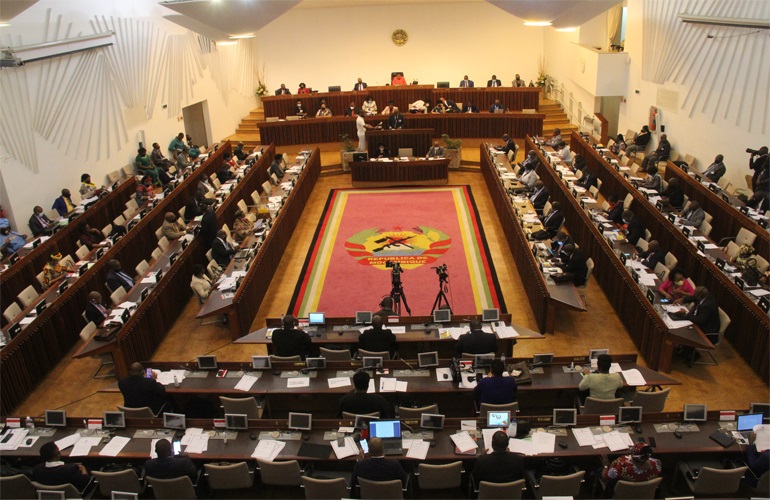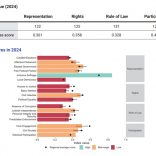Mozambique: FAZSOI participate in specialised Maintenance Programme
Mozambique: Parliament passes new law to manage natural disasters, pandemics

Photo: Notícias
The deputies approved, by consensus, a law that will allow the management of situations of public calamity, including pandemics such as Covid-19, without having to resort to declaring a state of emergency.
The appreciation and approval of the new law this Monday (10.08) comes at a time when some sectors of opinion have been criticising the new state of emergency in force in the country since last Saturday as unconstitutional.
Minister of State Administration and Public Service Ana Comoana stated that the Law on Disaster Risk Management and Reduction approved this Monday introduces elements to make a flexible and dynamic response to any type of disaster possible.
Comoana added that the new law envisages an integrated view and addresses the management of phenomena in all their extension from prevention, preparation, response and recovery in the face of a diverse set of collective risks.
“If we had a law as comprehensive as the one we are proposing, eventually the head of state would not need to decree the state of emergency several times,” Minister Comoana said. “The gap in the current law meant that the head of state had to resort to this mechanism.”
Covid-19 state of emergency
A new state of emergency has been in effect since last Saturday (08.08), after a first cycle that ran from April to July.
For Mozambican National Resistance (Renamo) deputy Maria Joaquina, the new state of emergency is unconstitutional, because the measure can only be decreed once, with three extensions, which has already happened.
“Only with a punctual review of the calamity law could constitutional legality be maintained. On the other hand, it would help to alleviate the suffocation of the people whose rights are being violated,” Joaquina said.
“Declaration within the law”
The contrary opinion was expressed by Mozambique Liberation Front (Frelimo) deputy Carlos Moreira Vasco, who said that the declaration of a state of emergency did not violate the constitution.
The new Disaster Risk Management and Reduction law, he added, would “create an environment of greater social harmony in the management of social stress caused by pandemics and other calamities”.
Given the complexity and unpredictability of epidemics and pandemics, the government should create a draft law on public health, he added.
MDM deputy Manuel Domingos expressed concern. “Our country has many good laws,” he said, but “the problem lies in compliance. In this law proposal, for example, the principle of universality is foreseen, which provides that risk management benefits all Mozambicans without any kind of discrimination, which in reality does not happen.”
The deputies approved in the text of the new law the creation of a disaster risk management and reduction entity, INGC, and the imposition of the regular presentation of accounts of risk and disaster operations.
The new law
For the first time in the Mozambican legal system, the law passed yesterday gives the government the authority to declare a public calamity throughout the national territory or part of it.
This in turn allows it to adopt security measures and order the reorganisation of commercial and industrial activity and access to goods and services.
Under the new law, the government must, in the context of public calamity, also regulate the operation of public transport, road, air, sea, river and rail traffic.
The government can also reorganise the functioning of educational institutions, public administration, places of worship, as well as performing shows, sports, cultural and leisure activities.
The new law also provides for the declaration of an emergency situation – distinct from that of a state of emergency – which can be local or national and divided into Level One (orange alert), and Level Two (red alert).












Leave a Reply
Be the First to Comment!
You must be logged in to post a comment.
You must be logged in to post a comment.